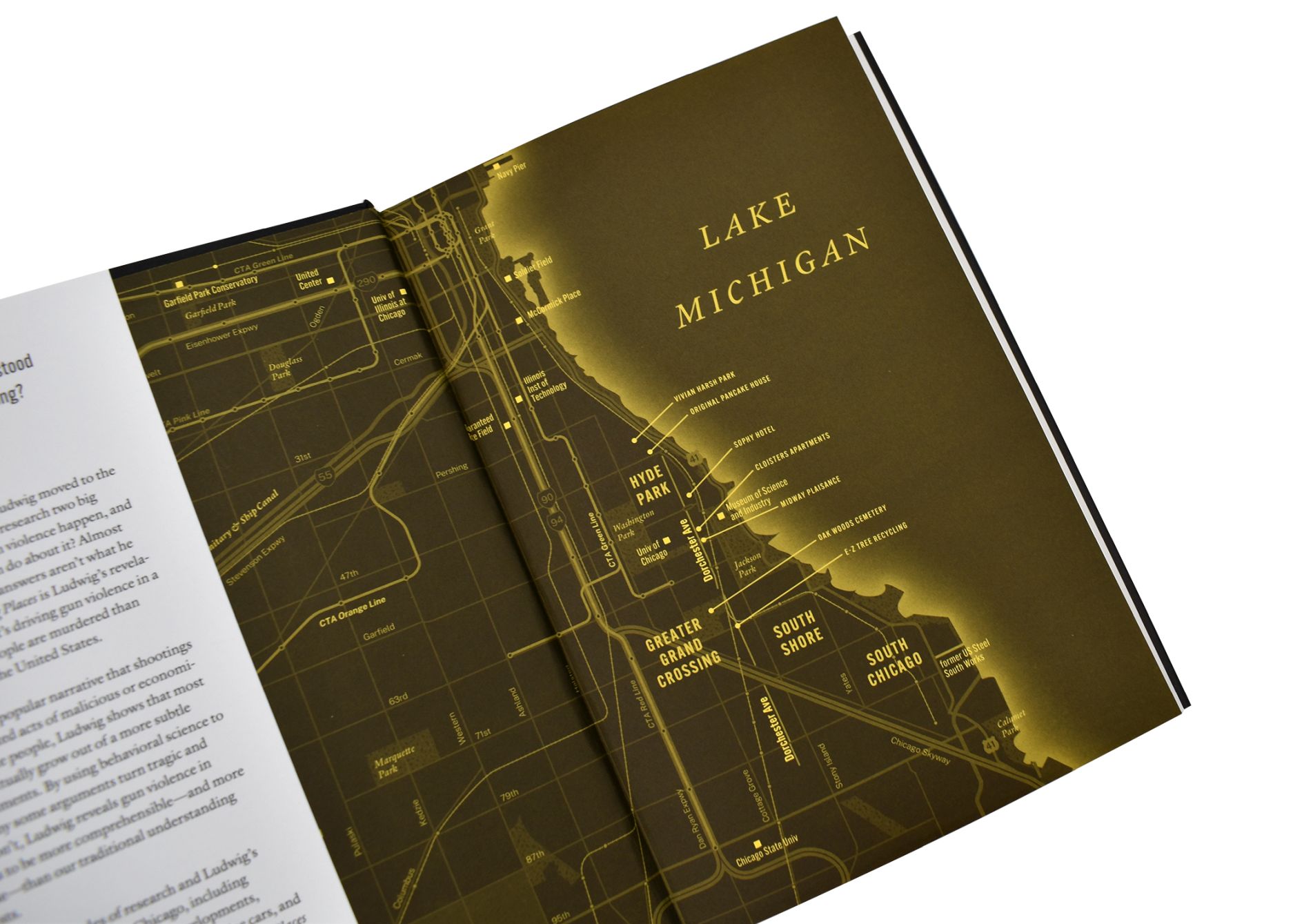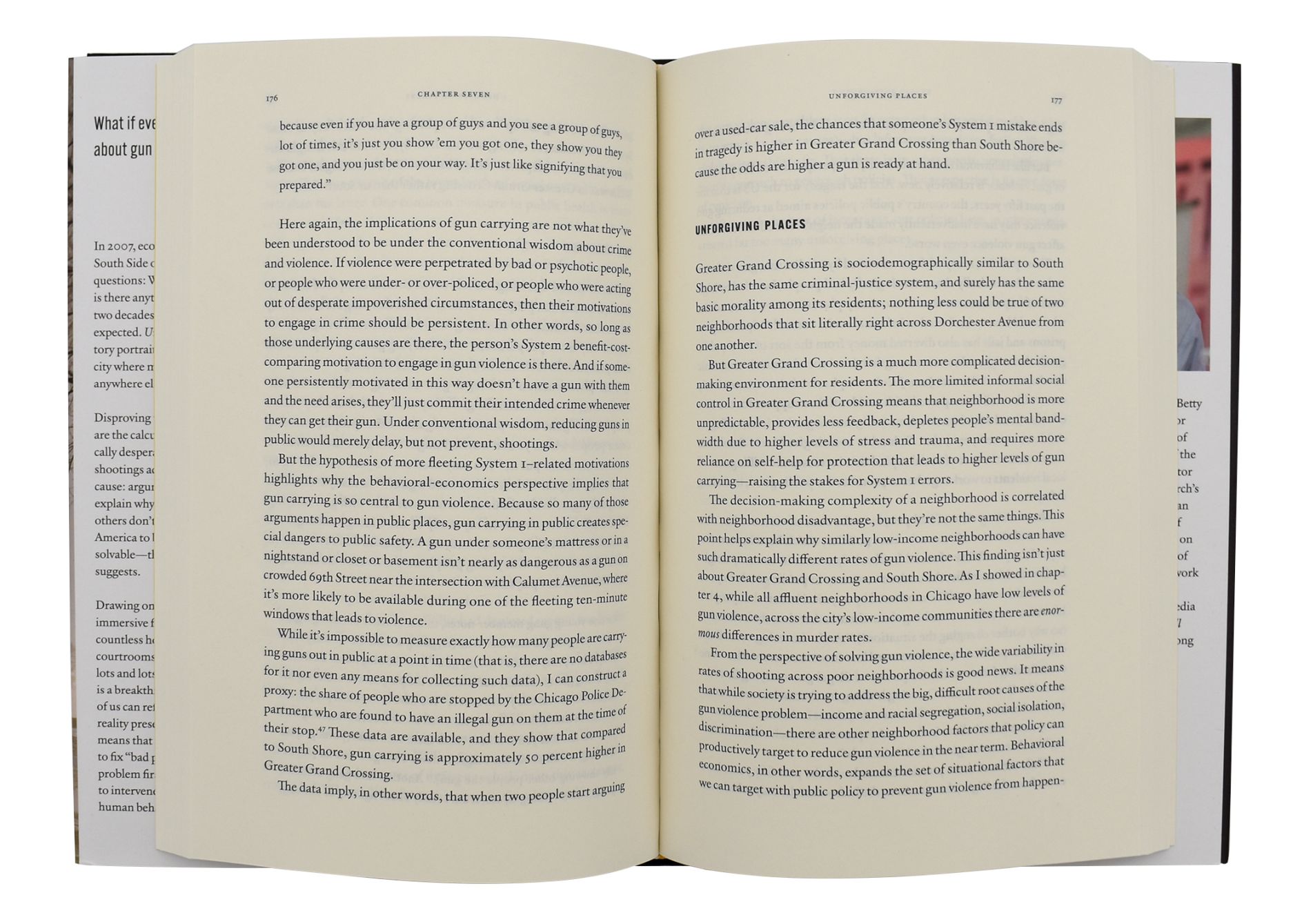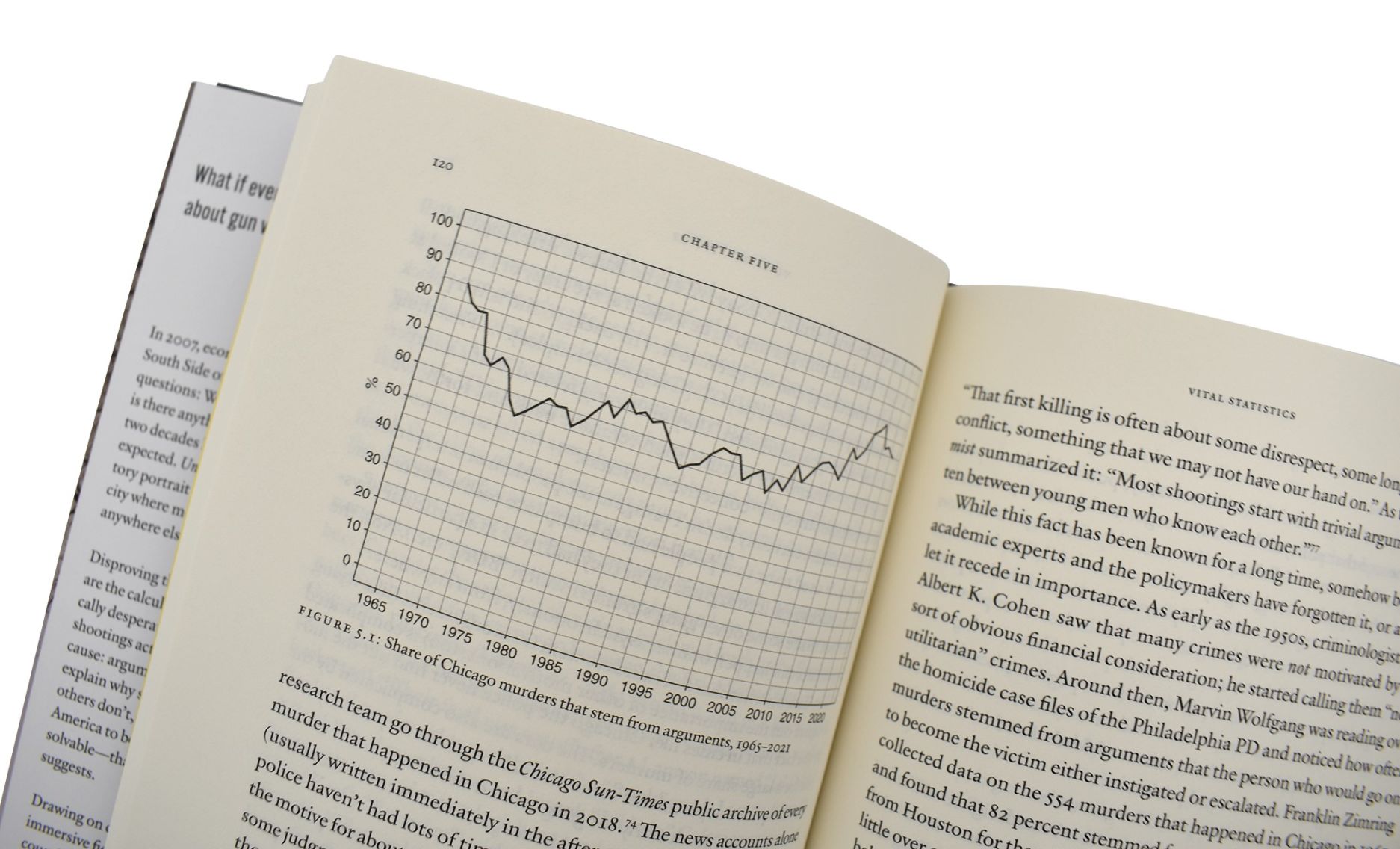Unforgiving Places
The Unexpected Origins of American Gun Violence
What if everything we understood about gun violence was wrong?
In 2007, economist Jens Ludwig moved to the South Side of Chicago to research two big questions: Why does gun violence happen, and is there anything we can do about it? Almost two decades later, the answers aren’t what he expected. Unforgiving Places is Ludwig’s revelatory portrait of gun violence in America’s most famously maligned city.
Disproving the popular narrative that shootings are the calculated acts of malicious or desperate people, Ludwig shows how most shootings actually grow out of a more fleeting source: interpersonal conflict, especially arguments. By examining why some arguments turn tragic while others don't, Ludwig shows gun violence to be more circumstantial—and more solvable—than our traditional approaches lead us to believe.
Drawing on decades of research and Ludwig’s immersive fieldwork in Chicago, including “countless hours spent in schools, parks, playgrounds, housing developments, courtrooms, jails, police stations, police cars, and lots and lots of McDonald'ses,” Unforgiving Places is a breakthrough work at the cutting edge of behavioral economics. As Ludwig shows, progress on gun violence doesn’t require America to solve every other social problem first; it only requires that we find ways to intervene in the places and the ten-minute windows where human behaviors predictably go haywire.
In 2007, economist Jens Ludwig moved to the South Side of Chicago to research two big questions: Why does gun violence happen, and is there anything we can do about it? Almost two decades later, the answers aren’t what he expected. Unforgiving Places is Ludwig’s revelatory portrait of gun violence in America’s most famously maligned city.
Disproving the popular narrative that shootings are the calculated acts of malicious or desperate people, Ludwig shows how most shootings actually grow out of a more fleeting source: interpersonal conflict, especially arguments. By examining why some arguments turn tragic while others don't, Ludwig shows gun violence to be more circumstantial—and more solvable—than our traditional approaches lead us to believe.
Drawing on decades of research and Ludwig’s immersive fieldwork in Chicago, including “countless hours spent in schools, parks, playgrounds, housing developments, courtrooms, jails, police stations, police cars, and lots and lots of McDonald'ses,” Unforgiving Places is a breakthrough work at the cutting edge of behavioral economics. As Ludwig shows, progress on gun violence doesn’t require America to solve every other social problem first; it only requires that we find ways to intervene in the places and the ten-minute windows where human behaviors predictably go haywire.
352 pages | 17 halftones, 1 tables | 6 x 9 | © 2025
Economics and Business: Economics--Urban and Regional
Sociology: Criminology, Delinquency, Social Control
Reviews
Table of Contents
Preface
Chapter 1: A New Idea
Chapter 2: The Limits of Gun Control
Chapter 3: The Origins of Wicked People
Chapter 4: In Search of the Roots of Violence
Chapter 5: Vital Statistics
Chapter 6: Behavioral Economics and Gun Violence
Chapter 7: Unforgiving Places
Chapter 8: Weight of Evidence
Chapter 9: The Case for Hope
Acknowledgments
Notes
Bibliography
Index
Chapter 1: A New Idea
Chapter 2: The Limits of Gun Control
Chapter 3: The Origins of Wicked People
Chapter 4: In Search of the Roots of Violence
Chapter 5: Vital Statistics
Chapter 6: Behavioral Economics and Gun Violence
Chapter 7: Unforgiving Places
Chapter 8: Weight of Evidence
Chapter 9: The Case for Hope
Acknowledgments
Notes
Bibliography
Index



